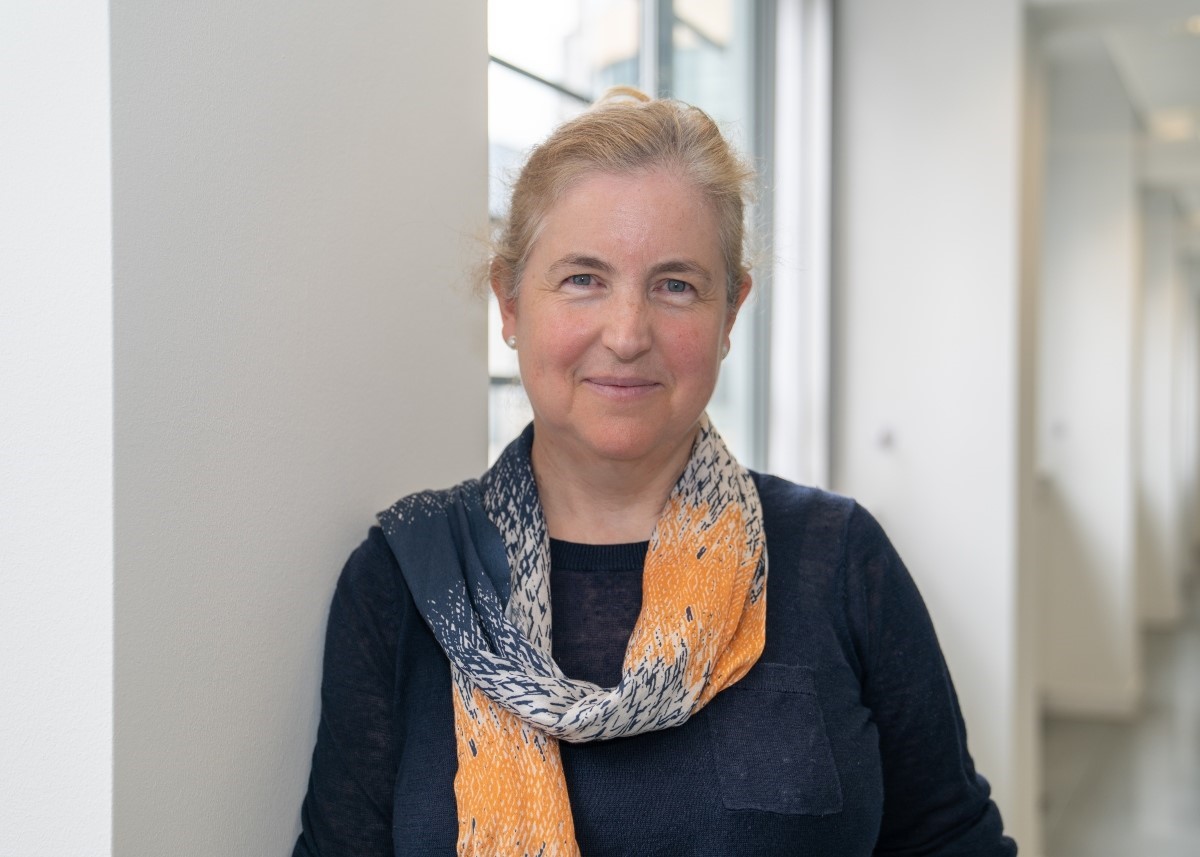New research reveals that hot flushes and night sweats experienced by women with breast cancer could be reduced through cognitive behavioural therapy (CBT) delivered by breast care nurses.
New research reveals that hot flushes and night sweats experienced by women with breast cancer could be reduced through cognitive behavioural therapy (CBT) delivered by breast care nurses.

A new way to manage menopausal side effects
Researchers, funded by Breast Cancer Now, have shown that cognitive behavioural therapy (CBT), a type of talking therapy delivered in group sessions by breast care nurses, helps women with breast cancer reduce the impact of hot flushes and night sweats.
Women who received CBT found these treatment side effects became almost twice as easy to cope with. Their frequency also reduced. The therapy also helped to improve sleep and reduce levels of depression and anxiety.
Once the pressures on the NHS start to ease, and capacity and resource has been considered, Breast Cancer Now would like to see breast care nurses across the UK supported to deliver group CBT to women with breast cancer.
Promising results have already emerged
Led by Professor Deborah Fenlon, researchers based at Swansea University and working with the University of Southampton’s Clinical Trials Unit and King’s College London tested group CBT sessions in six UK hospitals. 127 women taking part in the trial had primary breast cancer or ductal carcinoma in situ (DCIS), an early form of the disease. They were also experiencing severe and frequent hot flushes or night sweats.
Half of these women attended six 90-minute CBT group sessions, delivered by breast care nurses who had been trained by a clinical psychologist. The other half received standard care, and often ad hoc advice.
Women who received CBT sessions reported the frequency of their menopausal symptoms reduced by over a quarter (28%). It’s over double that of women who received standard care (11%). They also found the side effects became almost twice as easy to cope with compared to the start of trial.
‘In previous trials, we have found that group CBT delivered by a clinical psychologist is an effective way to alleviate menopausal symptoms for women who have undergone breast cancer treatment,’ said Professor Myra Hunter from King’s College London, who developed the group CBT and trained the nurses.
‘There are clear advantages for women to access this support from nurses who they may already know, so it is a considerable step forward to demonstrate that this therapy is just as effective when delivered by trained breast care nurses.’
The CBT sessions covered topics including stress management, paced breathing, improved wellbeing and strategies for managing the specific side effects of hot flushes, night sweats and disrupted sleep.
Addressing an urgent need
Up to 85% of women with breast cancer experience distressing hot flushes and night sweats due to chemotherapy and hormone therapies.
‘I had hot flushes all through the day and night. It felt like every half an hour,’ said Natalie Richards, 39, who was diagnosed with triple negative breast cancer and experienced intense side effects during chemotherapy. ‘I was breaking out into full sweats no matter the time or weather, on top of all the other side effects of my chemotherapy, yet this side effect had never been mentioned or discussed with me. When I explained I was struggling with hot flushes I felt this was dismissed, without any advice around how I could try to ease this distressing side effect.’
Hormone replacement therapy (HRT), which can be offered to treat natural menopause, is not usually recommended to women with breast cancer. This is because it can increase the risk of cancer returning. CBT could offer a safe and effective alternative to reduce these side effects and improve quality of life.
‘It’s hugely exciting to see that CBT delivered by a breast care nurse can help to spare women, who’ve already had the difficult experience of a breast cancer diagnosis, this further anguish,’ added Dr Simon Vincent, Director of Research, Support and Influencing at Breast Cancer Now.
Breast Cancer Now is grateful to Walk the Walk for their generous financial support of Professor Fenlon’s project.
The study was published in the journal Psychooncology.
If you are struggling with hot flushes and night sweats due to breast cancer treatment, visit out page on other ways of managing menopausal symptoms.